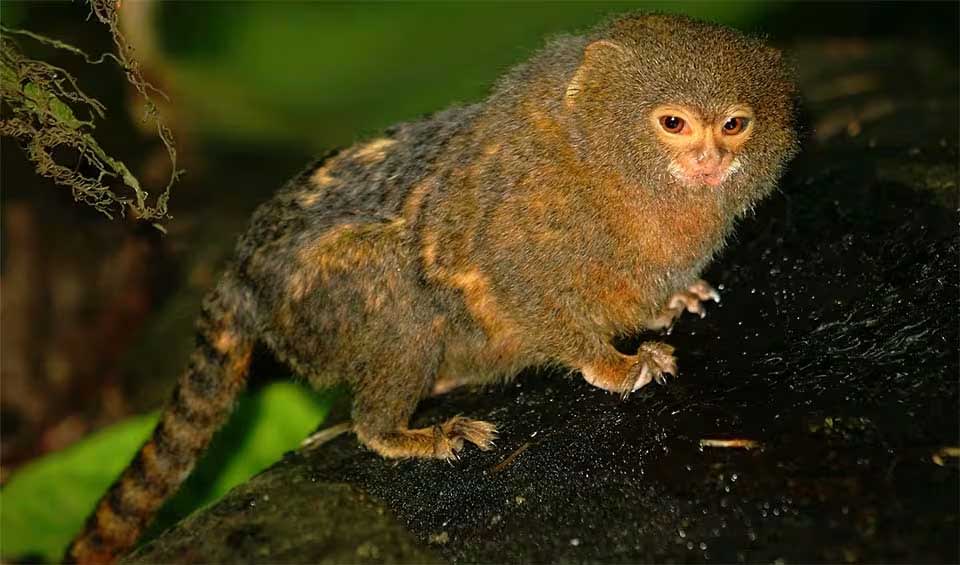Cebuella – Pygmy marmosets
Native to the western Amazon Basin, they are some of the smallest primates in the world
The Pygmy marmosets are known for being the smallest monkeys in the world. Their diminutive stature and endearing features make them a subject of fascination and study among primatologists and wildlife enthusiasts alike. This genus is represented by two species: the Western Pygmy Marmoset (Cebuella pygmaea) and the Eastern Pygmy Marmoset (Cebuella niveiventris), each adapted to the unique environmental conditions of their specific habitats within the vast rainforests of the western Amazon Basin in Brazil, South America.
Despite their small size, pygmy marmosets are adept climbers and spend most of their lives in the dense, green canopies of the rainforest. They exhibit only a few morphological differences between the two species, mainly in their coat colors, ranging from brownish-gold to black tones, serving as camouflage against the bark of trees and the lush foliage of their environment. These tiny primates have a body length ranging from 12 to 15 centimeters (4.7 to 5.9 inches), with a tail longer than their body, aiding in balance and agility as they navigate the branches.
A distinctive feature of the pygmy marmoset’s diet is their specialization in feeding on tree gum. Unlike many other primates that primarily consume fruits, leaves, and insects, pygmy marmosets have adapted specialized incisors to gouge into the bark of trees, stimulating the flow of sap. This adaptation allows them to access a consistent and nutrient-rich food source throughout the year, independent of seasonal changes that affect the availability of fruits and insects. They use their sharp teeth to create small holes in the tree’s bark, from which they lap up the accumulating sap with their tongues.
Pygmy marmosets live in small family groups, typically consisting of a breeding pair and their offspring. These groups maintain close bonds through a variety of vocalizations, physical grooming, and playful interactions, underscoring the social nature of these primates.
Species in this genus
Pygmy marmoset
Extremely agile and flexible creatures, they could leap up to 4.57m (15 ft) vertically and rotate their head for up to 180 degrees

